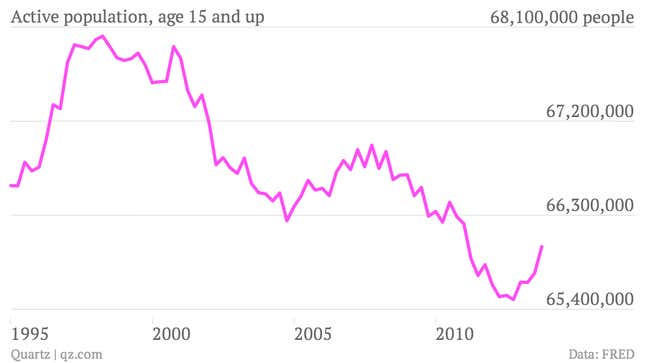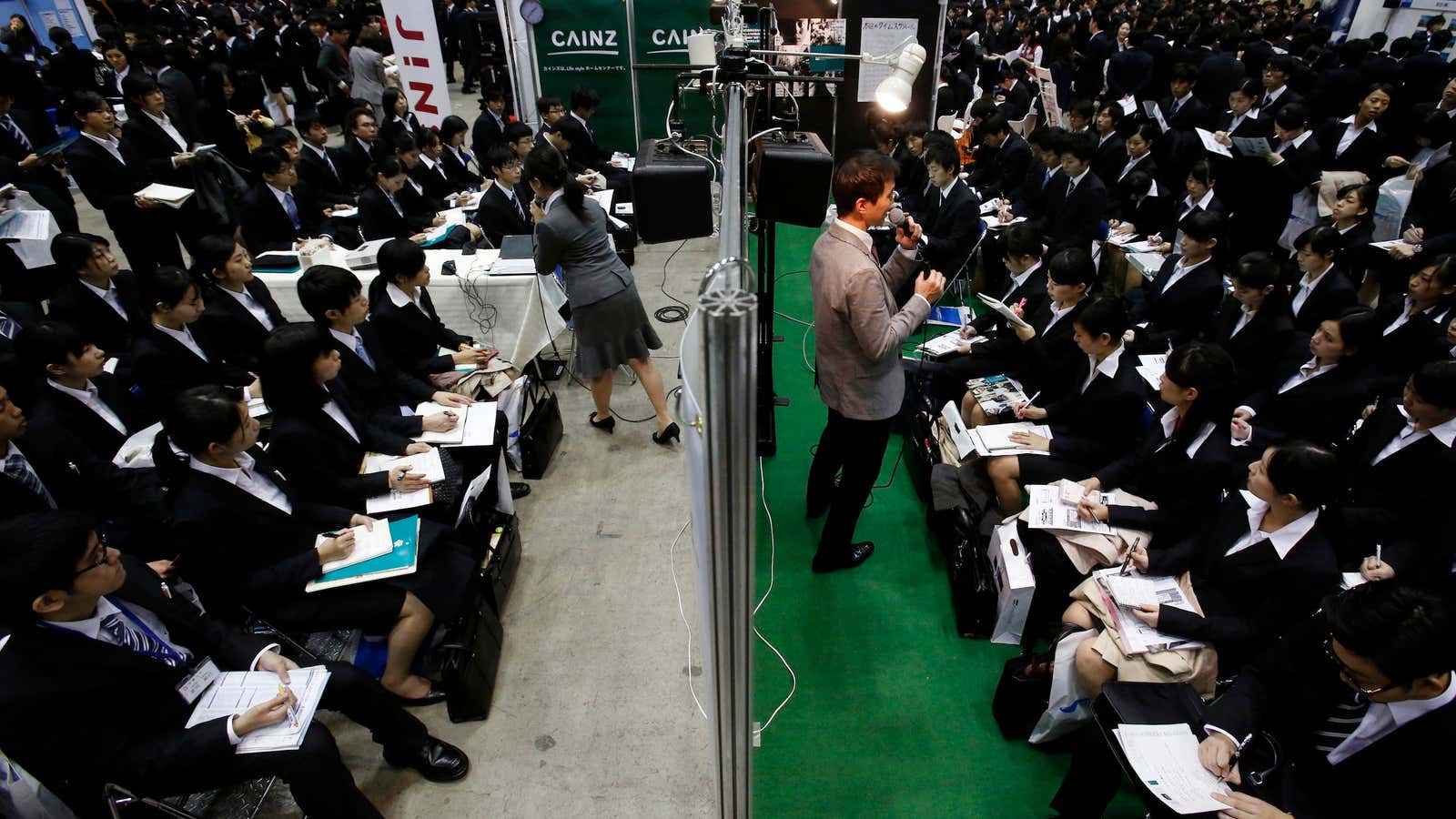With an aging population and shrinking workforce, Japanese companies are struggling to hire for open positions. And it appears their efforts have been complicated by overly formal procedures that can raise the bar too high for applicants. Companies in the country make even applicants for relatively low-paying jobs jump through hoops that would seem ridiculous elsewhere.
In March, the Japanese discount chain Don Quijote stopped requiring that applicants submit standard, formal Japanese resume forms. Applications to the company grew five-fold, according to Reuters.
In a country where many companies are slowing down because of an increasingly tight labor market, that’s a big deal. The Japanese labor force has been shrinking for years:

The standard Japanese resume is called a rirekisho, and it’s much more formal and regimented (PDF) than the usual Western resume. Some of the differences are relatively minor: There’s a convention, for example, that applicants include a small somewhat formal passport sized photo to go along with their resume.
But the part that apparently turns a lot of employees off is the extremely extended education section. In a Western resume, you might list your undergraduate institution and graduate school. It’s common on a rirekisho to go all the way back to elementary school. You also list not only your previous employers, but the particular reason that you left each job, along with a lot of other detailed personal information.
Emphasis is placed on completeness, accuracy, and attention to detail, so for those working a series of part-time jobs, generating a full rirekisho is a significant burden. And indeed, the fact that removing the requirement led to such a flood of applications indicates that it had discouraged some job-seekers from applying.
Lowering the bar to entry for new employees is just one small step, but as Japan’s economy makes a broader transition away from lifetime employment and toward a more flexible model, anything that eases the process is a positive step. Later this month, the government will announce a series of reforms, expected to include calls for more flexible employment options, opportunities for women, and skills assessment standards.
Broader and tougher measures, including a substantially relaxed immigration and citizenship policy and loosened limits on working hours, are on a longer to-do list of labor market reforms that Japan needs to implement.
Still, if something as simple as changing resume requirements causes a flood of applications, it’s worth exploring whether some cultural and management tweaks might start to move the needle.
